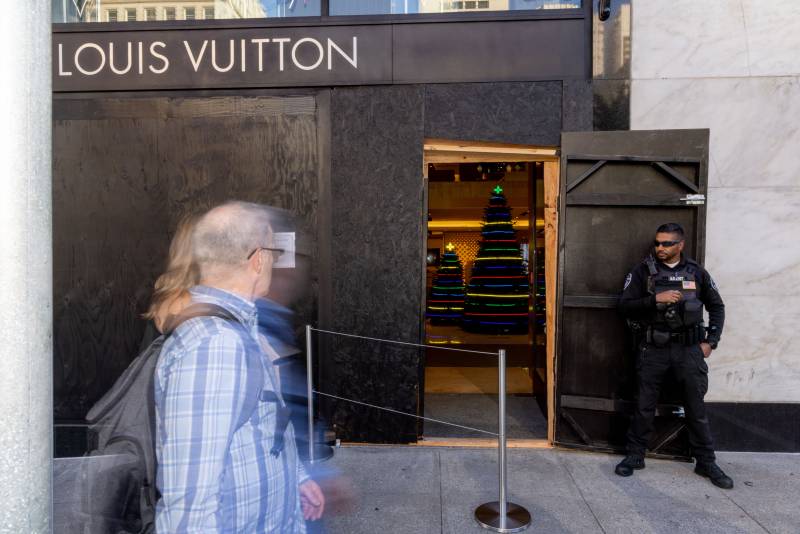The proposed measure wouldn’t entirely repeal Proposition 47, but it would gut some of its key provisions, which were aimed at keeping lower level criminals and drug users out of jail and prison. The proposal would make it easier to charge repeat offenders with a felony and increase penalties for organized retail theft rings. It would also stiffen penalties for selling fentanyl and other “hard drugs” such as heroin, methamphetamines and cocaine. And it would mandate as much as a year in jail for possessing those same drugs — though the ballot measure also gives judges the option of diverting those accused of possession into drug treatment programs.
Backers have raised more than $7 million, mostly from large retailers like Walmart, which has donated $2.5 million, and Home Depot, which cut a $1 million check last month. And many prosecutors in California, who have long been critical of Proposition 47, helped write and are backing the ballot measure.
Campaign spokesperson Becky Warren said the measure has received “overwhelming” support from people across the political spectrum as they gather signatures.
“This bipartisan ballot measure is a commonsense approach that prioritizes improving community safety while balancing accountability for repeat retail theft offenders and drug traffickers, with meaningful treatment and rehabilitation for serious addicts who need support,” she said in a written statement.
But supporters of the original criminal justice reforms in Proposition 47 are pushing back. They’ve joined with progressive lawmakers to roll out a package of legislation they say would help curb retail theft and address the fentanyl crisis, without altering Proposition 47. Among the proposals: legislation aimed at making it harder for people to sell stolen goods online, bills to increase diversion programs for people accused of theft, and measures to increase drug treatment opportunities.
Tinisch Hollins is executive director of Californians for Safety and Justice, the group that sponsored Proposition 47. She said the provisions in the potential November ballot measure have already been proven to fail — and that’s why voters embraced reform in the first place.
“We’ve tried tough on crime, right? … We have decades of proof that that doesn’t work,” she said. “The issue of organized retail theft is much too nuanced to just throw a blanket repeal for a proposition — not to mention the cost to the state and our communities if we go back to just criminalizing everyone and putting them in jail and prison for low-level offenses. It’s just the wrong approach.”
Hollins said her group broadly supports efforts in the Legislature to tackle organized retail theft and she added that laws to hold fentanyl dealers and thieves accountable already exist. She said it’s up to law enforcement to use the tools they already have, noting there’s been a huge decrease in arrest rates for theft over the past decade.
An assessment by the nonpartisan Legislative Analyst Office (PDF) found that the proposed ballot measure would result in California spending hundreds of millions of dollars more each year to incarcerate people in prison. The report said it would also cost counties tens of millions of dollars annually in jail, probation and court spending. Hollins questioned, with increased costs and the existing shortage of drug treatment programs, whether there would even be treatment available for people eligible for diversion under the proposed measure.
“The ballot initiative doesn’t increase funding. In fact, if [Proposition] 47 is repealed, then we have hundreds of millions of dollars going back to the system instead of for these types of intervention,” she said.


